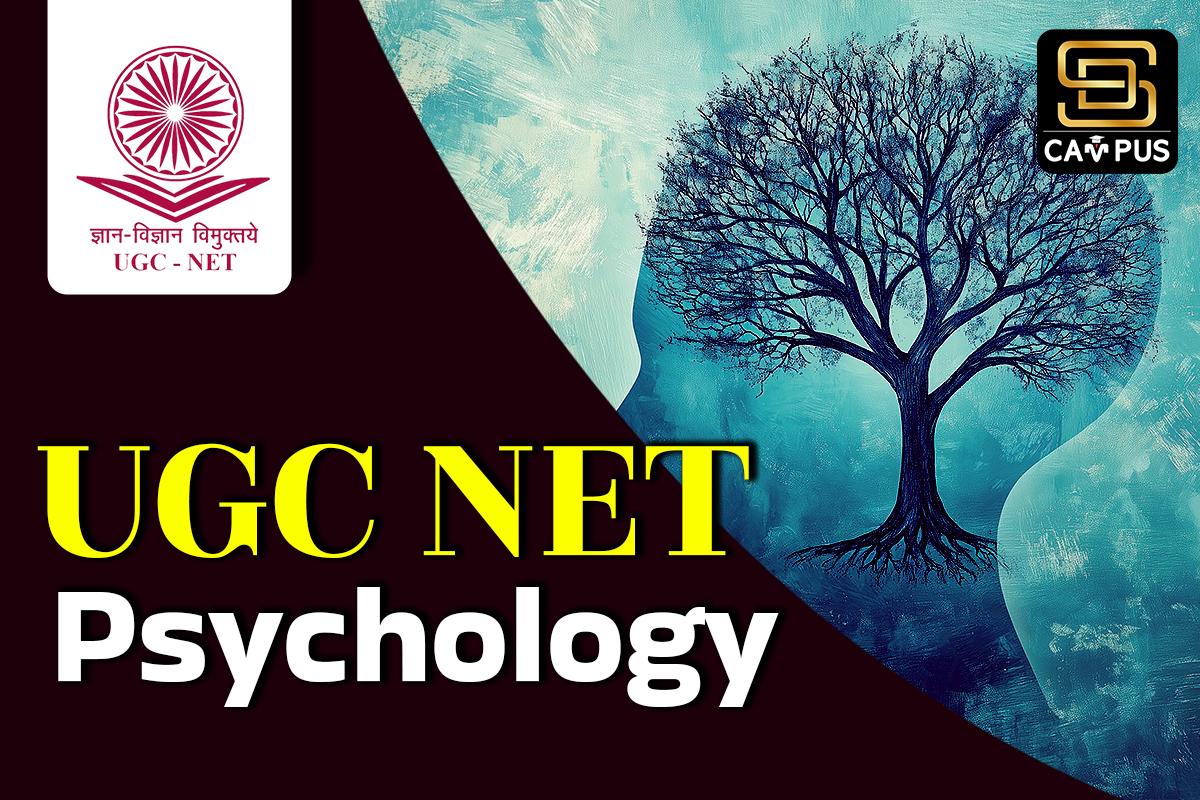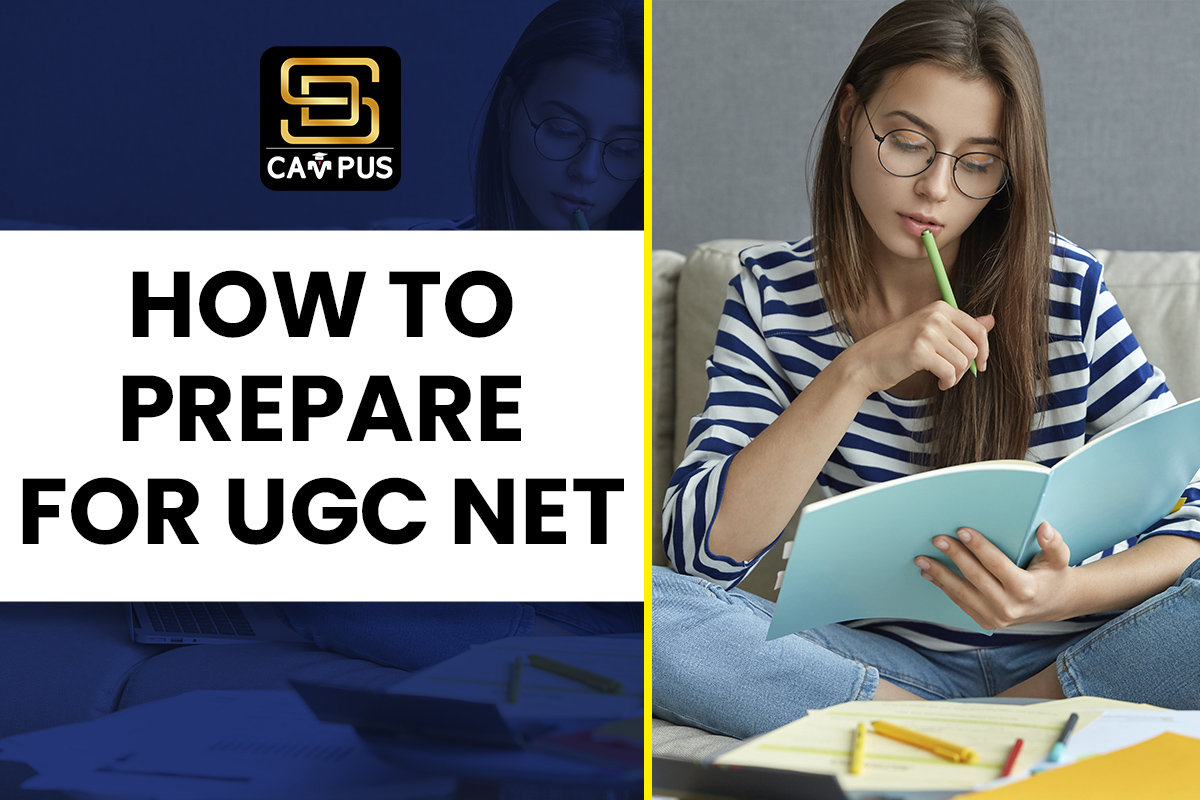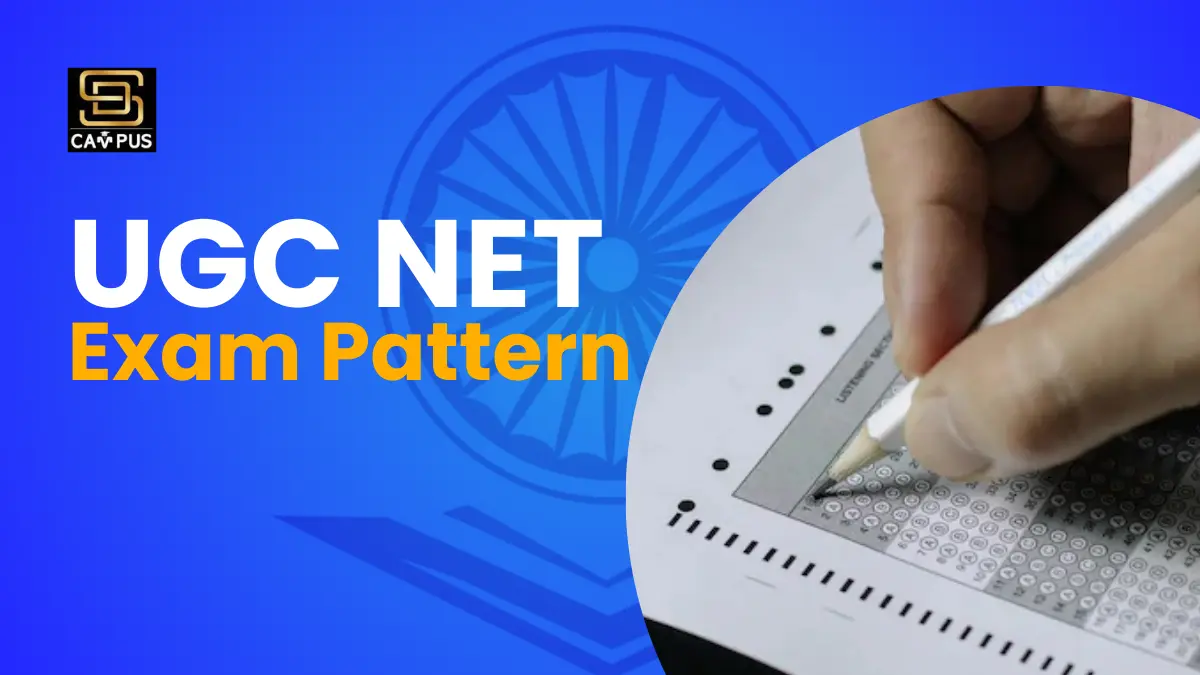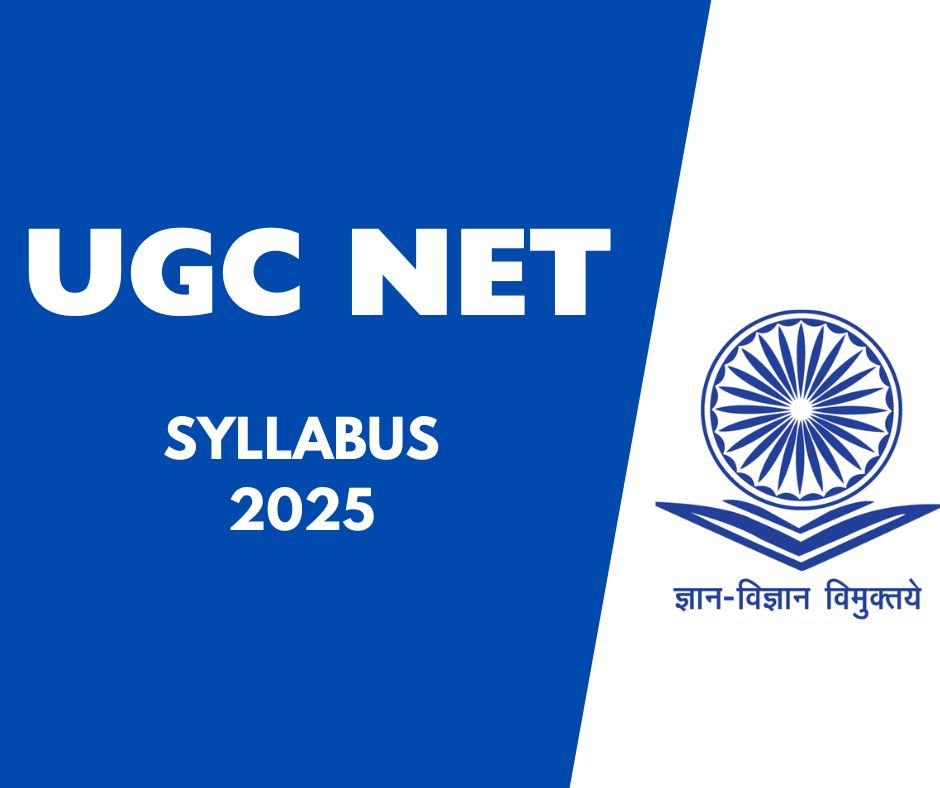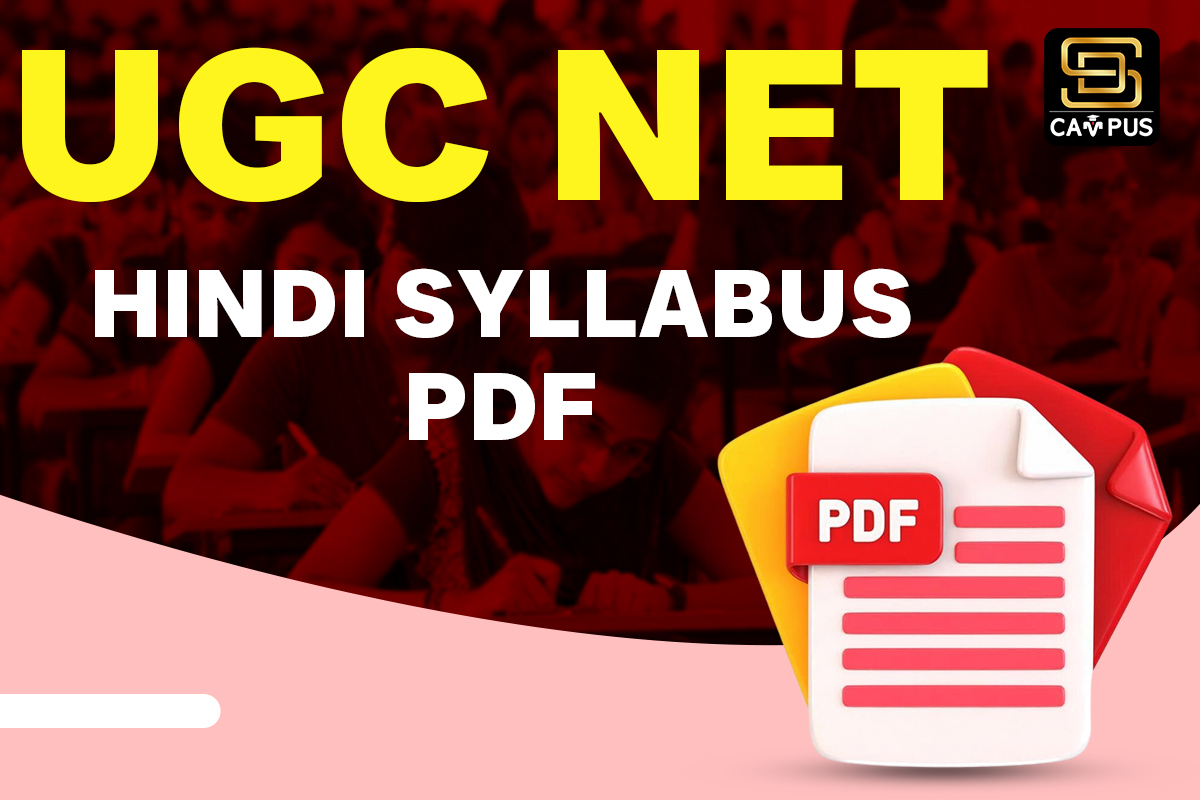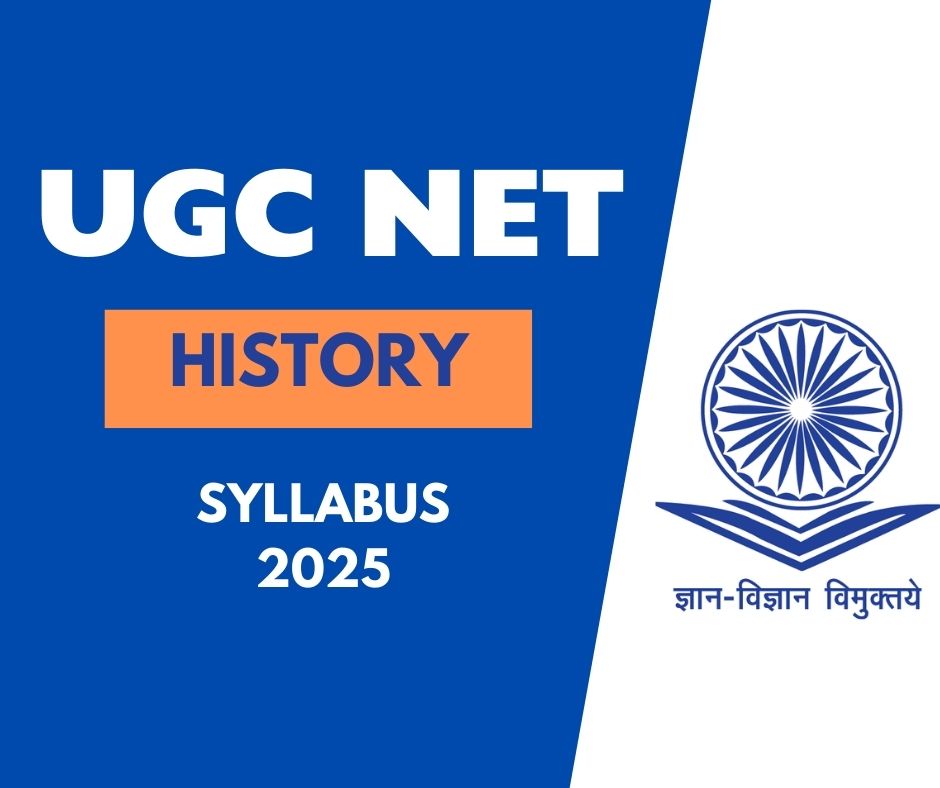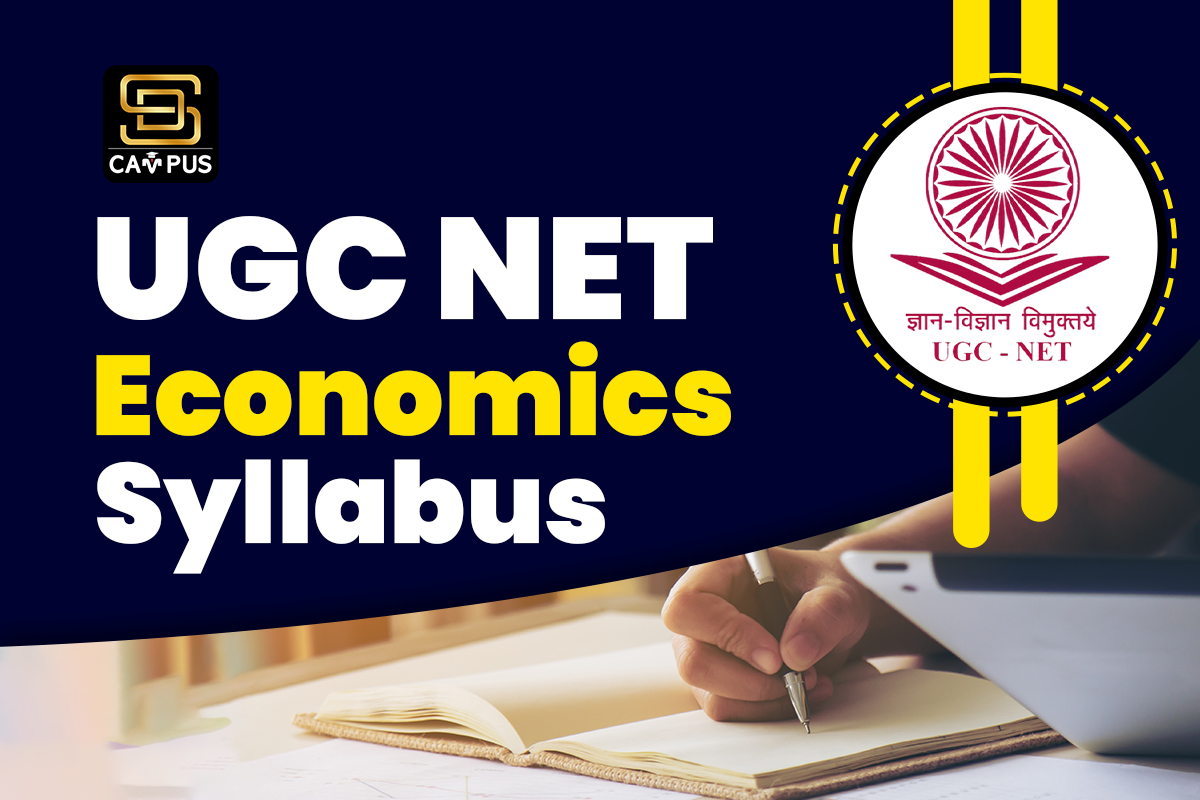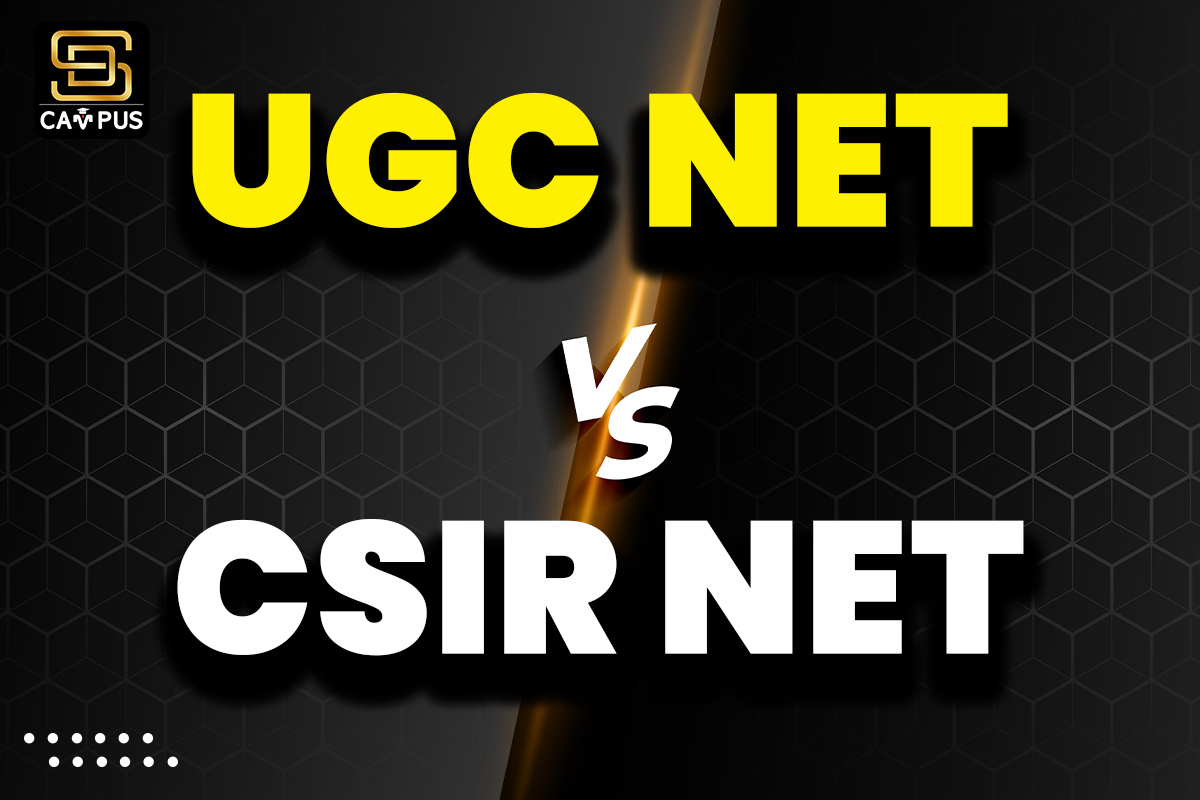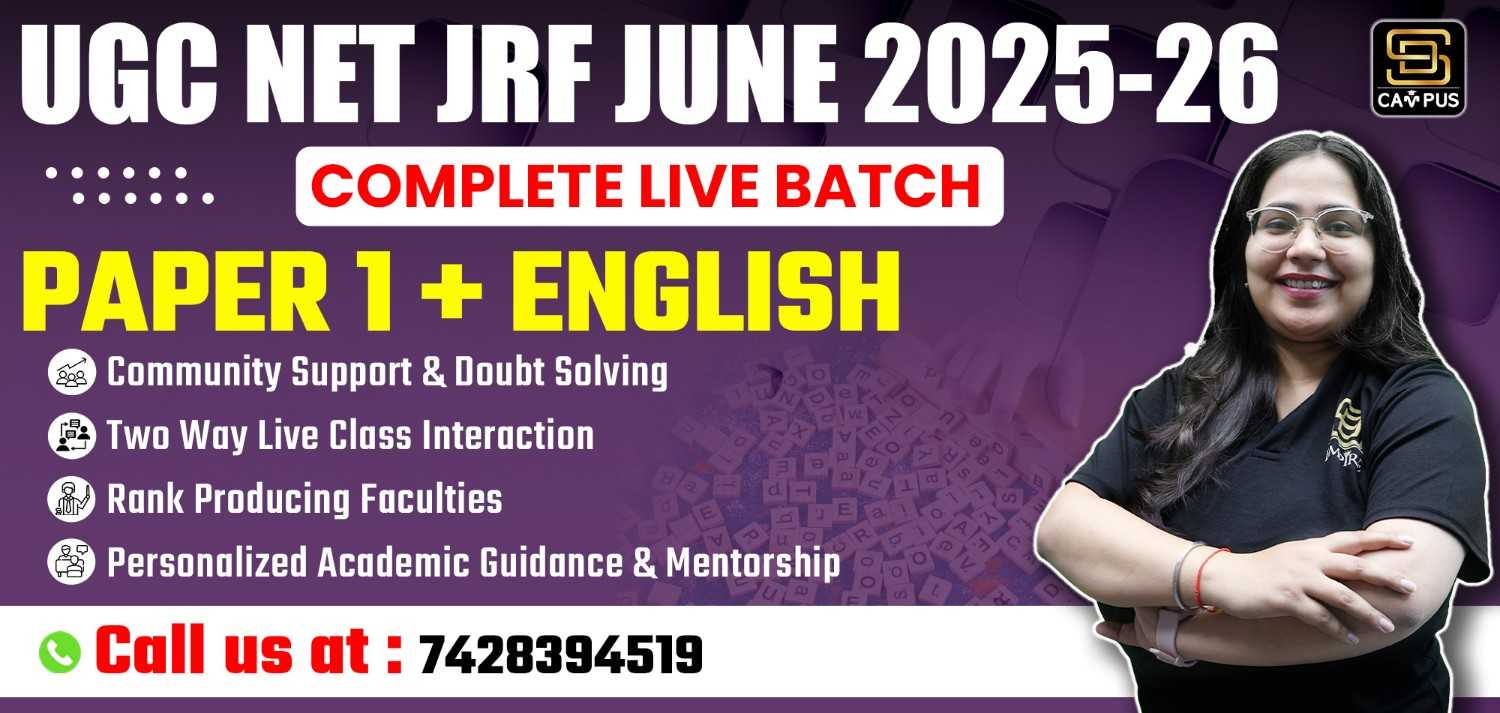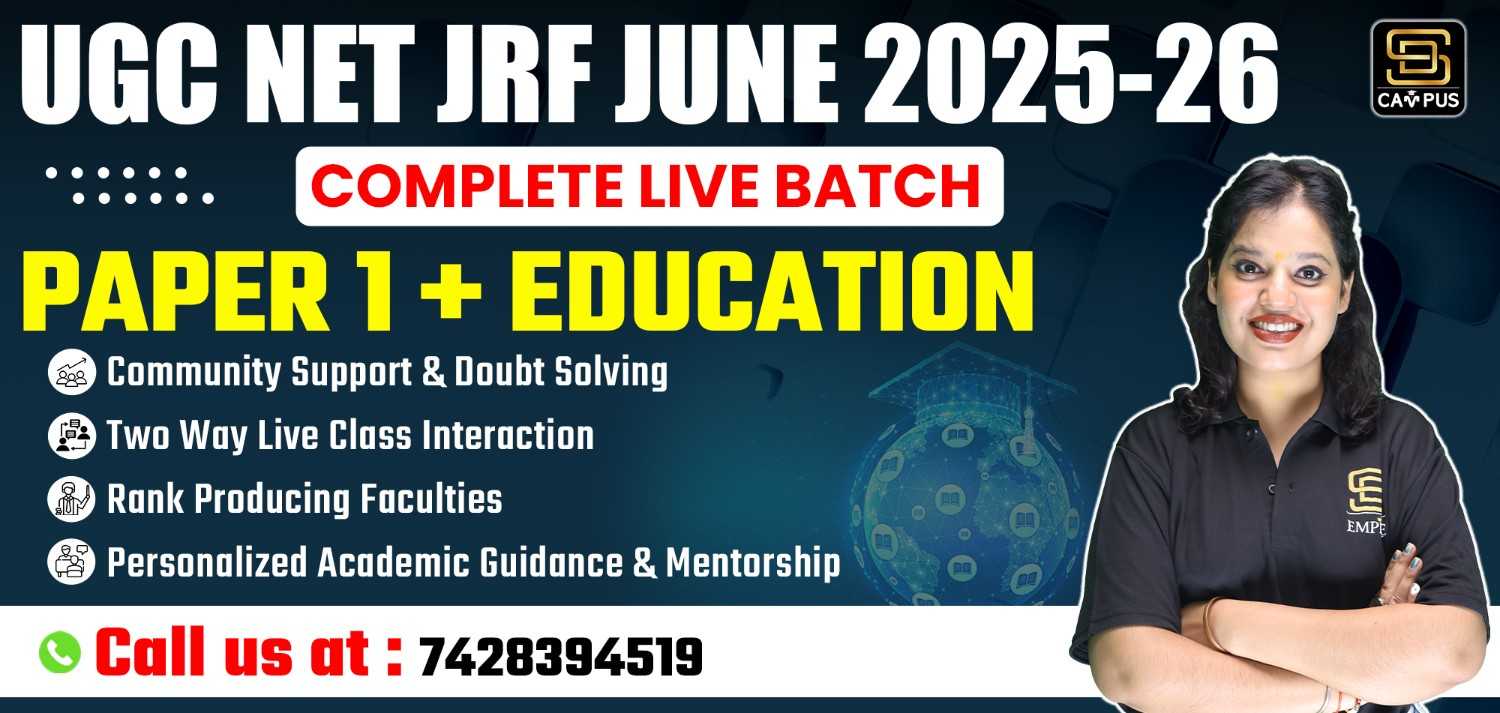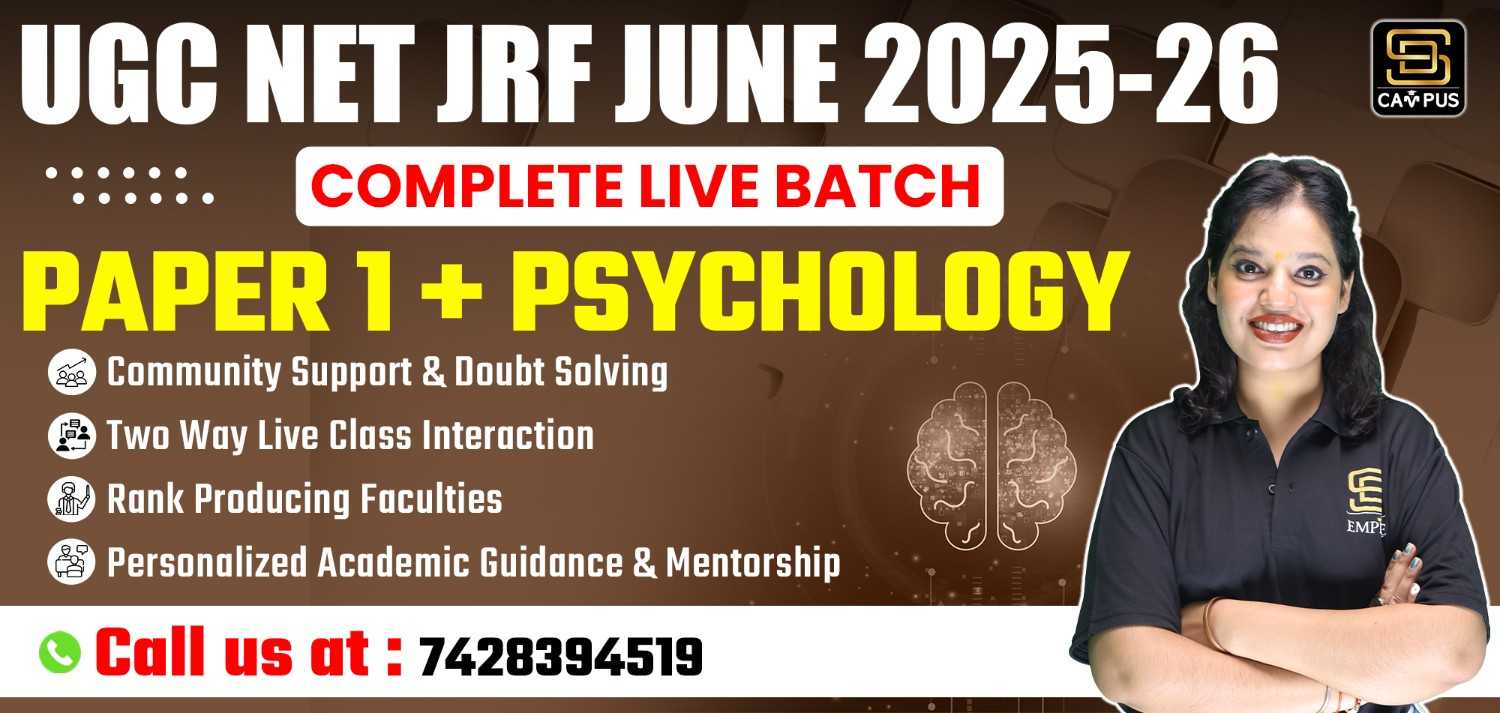University Grants Commission sets the UGC NET psychology syllabus. The National Testing Agency handles the National Eligibility Test (NET) on behalf of the UGC. The syllabus of the exam is vast and covers some topics from the psychology master’s course. Candidates can download the syllabus PDF from the site as well as the link in this article.
Table of Contents
ToggleUGC NET Psychology Syllabus Overview
Here are the important details about the UGC NET 2025 psychology exam:
| Exam Name | UGC NET Psychology |
| Exam Conducting Body | National Testing Agency |
| Post |
|
| Exam Level | National Level |
| Exam frequency | Twice (June and December) |
| Mode of Exam | Online |
| Medium of Exam | English and Hindi |
| Time Duration | 3 Hours |
| Number of papers | Paper 1: General
Paper 2: Psychology |
| Total Marks | Paper 1: 100 marks
Paper 2: 200 marks |
| Official Website | ugcnet.nta.nic.in |
UGC Net Psychology Syllabus Paper 1
Here is the syllabus for UGC NET 2025 Psychological Paper 1:
- Logical reasoning
- Mathematics and reasoning
- Teaching aptitude
- Research Aptitude
- Comprehension
- Communication
- Data Interpretation
- People, Development and Environment
- Information and Communication Technology (ICT)
- Higher Education System
UGC Net Psychology Syllabus Paper 2
UGC NET psychology syllabus has a total of 10 units. Candidates who have done a master’s in psychology will be familiar with most of these topics. The detailed syllabus is in the table below:
| Unit | Topic | Detail |
| 1 | Emergence of Psychology | Psychological thought in some major Eastern Systems: Bhagavad Gita, Buddhism, Sufism, and Integral Yoga. Academic psychology in India: Preindependence era; post-independence era; 1970s: The move to addressing social issues; 1980s: Indigenization; 1990s: Paradigmatic concerns, disciplinary identity crisis; 2000s: Emergence of Indian psychology in academia. Issues: The colonial encounter; Postcolonialism and psychology; Lack of distinct disciplinary identity.
Western: Greek heritage, the medieval period, and the modern period. Structuralism, Functionalism, Psychoanalytical, Gestalt, Behaviorism, Humanistic Existential, Transpersonal, Cognitive revolution, Multiculturalism. Four founding paths of academic psychology – Wundt, Freud, James, Dilthey. Issues: Crisis in psychology due to strict adherence to experimental analytical paradigm (logical empiricism). Indic influences on modern psychology. Essential aspects of knowledge paradigms: Ontology, epistemology, and methodology. Paradigms of Western Psychology: Positivism, Post-Positivism, Critical Perspective, Social Constructionism, Existential Phenomenology, and Co-operative Enquiry. Paradigmatic Controversies. Significant Indian paradigms on psychological knowledge: Yoga, Bhagavad Gita, Buddhism, Sufism, and Integral Yoga. Science and spirituality (avidya and vidya). The primacy of self-knowledge in Indian psychology. |
| 2 | Research Methodology and Statistics | Research: Meaning, Purpose, and Dimensions. Research problems, Variables and Operational Definitions, Hypothesis, Sampling. Ethics in conducting and reporting research
Paradigms of research: Quantitative, Qualitative, Mixed methods approach Methods of research: Observation, Survey [Interview, Questionnaires], Experimental, Quasi-experimental, Field Studies, Cross-Cultural Studies, Phenomenology, Grounded theory, Focus groups, Narratives, Case studies, Ethnography Statistics in Psychology: Measures of Central Tendency and Dispersion. Normal Probability Curve. Parametric [t-test] and Non-parametric tests [Sign Test, Wilcoxon Signed rank test, Mann-Whitney test, Kruskal-Wallis test, Friedman]. Power analysis. Effect size. Correlational Analysis: Correlation [Product Moment, Rank Order], Partial correlation, multiple correlation. Special Correlation Methods: Biserial, Point biserial, tetrachoric, phi coefficient. Regression: Simple linear regression, Multiple regression. Factor analysis: Assumptions, Methods, Rotation and Interpretation. Experimental Designs: ANOVA [One-way, Factorial], Randomized Block Designs, Repeated Measures Design, Latin Square, Cohort studies, Time series, MANOVA, ANCOVA. Single-subject designs. |
| 3 | Psychological testing | Test construction: Item writing, item analysis Test standardization: Reliability, validity and Norms
Areas of testing: Intelligence, creativity, neuropsychological tests, aptitude, Personality assessment, interest inventories Attitude scales – Semantic differential, Staples, Likert scale. Computer-based psychological testing Applications of psychological testing in various settings: Clinical, Organizational and business, Education, Counseling, and Military. Career guidance. |
| 4 | Biological basis of behavior | Sensory systems: General and specific sensations, receptors, and processes
Neurons: Structure, functions, types, neural impulse, synaptic transmission. Neurotransmitters. The Central and Peripheral Nervous Systems – Structure and functions. Neuroplasticity. Methods of Physiological Psychology: Invasive methods – Anatomical methods, degeneration techniques, lesion techniques, chemical methods, microelectrode studies. Non-invasive methods – EEG, Scanning methods. Muscular and Glandular system: Types and functions Biological basis of Motivation: Hunger, Thirst, Sleep, and Sex. Biological basis of emotion: The Limbic system, Hormonal regulation of behavior. Genetics and behavior: Chromosomal anomalies; Nature-Nurture controversy [Twin studies and adoption studies] |
| 5 | Attention, Perception, Learning, Memory and Forgetting | Attention: Forms of attention, Models of attention
Perception: Approaches to the Study of Perception: Gestalt and physiological approaches Perceptual Organization: Gestalt, Figure and Ground, Law of Organization Perceptual Constancy: Size, Shape, and Color; Illusions Perception of Form, Depth, and Movement Role of motivation and learning in perception Signal detection theory: Assumptions and applications, Subliminal perception and related factors, information processing approach to perception, culture and perception, perceptual styles, Pattern recognition, Ecological perspective on perception. Learning Process: Fundamental theories: Thorndike, Guthrie, Hull Classical Conditioning: Procedure, phenomena, and related issues. Instrumental learning: Phenomena, Paradigms and theoretical issues; Reinforcement: Basic variables and schedules; Behaviour modification and its applications Cognitive approaches in learning: Latent learning, observational learning. Verbal Learning and Discrimination Learning Recent trends in learning: Neurophysiology of learning Memory and Forgetting Memory processes: Encoding, Storage, and Retrieval Stages of memory: Sensory Memory, Short-term memory ( Work memory ), Long term memory (declarative – Episodic and Semantic Procedural |
| 6 | Personality, motivation, Emotion, Stress and coping | Determinants of Personality: Biological and socio-cultural Approaches to the Study of Personality: Psychoanalytic, Neo-Freudian, social learning, trait and type, cognitive, humanistic, Existential, Transpersonal psychology. Other theories: Rotter’s Locus of Control, Seligman’s Explanatory styles, and Kohlberg’s theory of Moral development.
Basic motivational concepts: Instincts, Needs, Drives, Arousal, Incentives, Motivational Cycle. Approaches to the study of motivation: Psychoanalytical, Ethological, S-R Cognitive, Humanistic, Exploratory behavior and curiosity, Zuckerman’s Sensation seeking, Achievement, Affiliation, and Power, Motivational Competence, Self-regulation Flow, Emotions: Physiological correlates, Theories of emotions: James-Lange, Canon-Bard, Schachter and Singer, Lazarus, Lindsley, Emotion regulation, Conflicts: Sources and types Stress and Coping: Concept, Models, Type A, B, C, D behaviors, Stress management strategies [Biofeedback, Music therapy, Breathing exercises, Progressive Muscular Relaxation, Guided Imagery, Mindfulness, Meditation, Yogasana, Stress Inoculation Training]. |
| 7 | Thinking, Intelligence, and Creativity | Theoretical perspectives on thought processes: Associationism, Gestalt, Information processing, Feature integration model. Concept formation: Rules, Types, and Strategies; Role of concepts in thinking, Types of Reasoning, Language and thought. Problem-solving: Type, Strategies, Obstacles
Decision-making: Types and models Metacognition: Metacognitive knowledge and Metacognitive regulation Intelligence: Spearman; Thurstone; Jensen; Cattell; Gardner; Stenberg; Goleman; Das, Kar & Parrila Creativity: Torrance, Getzels & Jackson, Guilford, Wallach & Kogan Relationship between Intelligence and Creativity |
| 8 | Social Psychology | Nature, scope, and history of social psychology.
Traditional theoretical perspectives: Field theory, Cognitive Dissonance, Sociobiology, Psychodynamic Approaches, Social Cognition. Social perception [Communication, Attributions]; attitude and its change within a cultural context; prosocial behavior, Group and Social influence [Social Facilitation; Social loafing]; Social influence [Conformity, Peer Pressure, Persuasion, Compliance, Obedience, Social Power, Reactance]. Aggression. Group dynamics, leadership style, and effectiveness. Theories of intergroup relations [Minimal Group Experiment and Social Identity Theory, Relative Deprivation Theory, Realistic Conflict Theory, Balance Theories, Equity Theory, Social Exchange Theory] Applied social psychology: Health, Environment and Law; Personal space, crowding, and territoriality. |
| 9 | Human Development and Interventions | Developmental processes: Nature, Principles, Factors in development, Stages of Development. Successful aging. Theories of development: Psychoanalytical, Behavioristic, and Cognitive. Various aspects of development: Sensory-motor, cognitive, language, emotional, social, and moral.
Psychopathology: Concept, Mental Status Examination, Classification, Causes Psychotherapies: Psychoanalysis, Person-centered, Gestalt, Existential, Acceptance Commitment Therapy, Behavior therapy, REBT, CBT, MBCT, Play therapy, Positive psychotherapy, Transactional Analysis, Dialectic behavior therapy, Art therapy, Performing Art Therapy, Family therapy. Applications of theories of motivation and learning in School Factors in educational achievement Teacher effectiveness Guidance in schools: Needs, organizational setup and techniques Counselling: Process, skills, and techniques |
| 10 | Emerging Areas | Issues of Gender, Poverty, Disability, and Migration: Cultural bias and discrimination. Stigma, Marginalization, and Social Suffering: Child Abuse and Domestic Violence.
Peace psychology: Violence, non-violence, conflict resolution at a macro level, the role of media in conflict resolution. Wellbeing and self-growth: Types of wellbeing [Hedonic and Eudemonic], Character strengths, Resilience and Post-Traumatic Growth. Health: Health-promoting and health-compromising behaviors, Lifestyle and Chronic diseases [Diabetes, Hypertension, Coronary Heart Disease], Psychoneuroimmunology [Cancer, HIV/AIDS] Psychology and technology interface: Digital learning; Digital etiquette: Cyberbullying; Cyber pornography: Consumption, implications; Parental mediation of Digital Usage. |
UGC Net Psychology Syllabus PDF
The UGC NET syllabus PDF is available online for download. Applicants can follow simple steps to download the syllabus in PDF format. Additionally, you can click on the link here to view the UGC NET 2025 psychology syllabus.
UGC Net Psychology Syllabus Exam Pattern
The UGC NET Psychology Syllabus is crucial; however, understanding the UGC NET exam pattern will help you prepare better. Refer to the table below for the details of the exam pattern for both papers of the UGC exam:
|
UGC Net Psychology Exam Pattern 2025 |
||
| Particular | No. of questions | No. of Marks |
| Paper 1 | 50 | 100 |
| Paper 2 | 100 | 200 |
| Total | 150 | 300 |
UGC Net Psychology Marking Scheme
The best part of the UGC exam is that it is conducted twice annually, and there is no negative marking in the UGC NET psychology. Candidates get 2 marks for each correct answer.
UGC NET 2025 Psychology Syllabus Preparation Strategy
There is tough competition in the UGC NET exams, so you need to follow a strategy to ace them. Read the pointers below by expert faculty members of the SD campus:
- Read the UGC NET Psychology syllabus and segregate the topics based on the time required to prepare. Start with easy topics.
- Win procrastination, make a study schedule, and follow it strictly.
- Analyze the time remaining for the exam, and divide it as per the syllabus, previous year’s questions practice, and revision sessions.
- Finally, the most important thing is to take short notes while you study, which can be like a summary of a certain topic. It’s going to help two-way, one will help establish the studied content in mind with clarity. The second one is that it helps in revision.
| Related Articles | |
| UGC NET English | UGC NET Hindi Syllabus |
Frequently Asked Questions
Ques 1: What is the UGC NET Psychology Syllabus 2025?
Ans 1: There are two papers for UGC NET psychology. The syllabus of Paper 1 includes topics on teaching aptitude, and Paper 2 is all about the subject-specific questions; most of the topics are based on master’s topics.
Ques 2: How to prepare the UGC NET psychology syllabus?
Ans 2: Start with going through the syllabus, then noting the exam pattern followed by the previous year’s question paper, and finally dividing the available time for preparation.
Ques 3: How many units are there in the UGC NET psychology syllabus?
Ans 3: There are a total of 10 units in the UGC NET 2025 psychology syllabus.
Ques 4: What is the eligibility to appear in the UGC NET psychology exam?
Ans 4: UGC NET psychology eligibility requires candidates should have a PG degree in psychology with 55% marks.
Ques 5: Is there no need for the UGC NET to become an assistant professor?
Ans 5: As per the UGC chief, you need UGC NET for all the traditional masters. But if you have done a master’s in professional courses like ME or M. Tech, you don’t need to clear UGC NET.
Archna is a University of Delhi graduate. She has 2 years of experience as a Content Writer in education, finance, and tech writing. She aims to create informative, clear, and concise user-friendly content. For the SD campus, she writes for: Teaching exams, Government Jobs, and School Entrance exams.

